Science
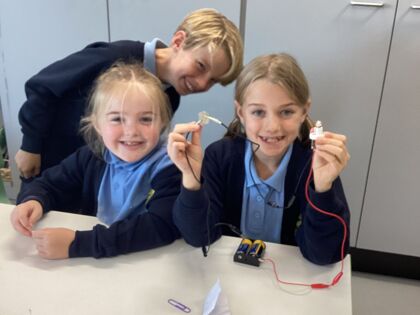 Science at Buntingford First School will aim to provide an engaging curriculum that will promote curiosity in the natural world. Through this curiosity we hope students will develop a love of Science and will be motivated to strive to achieve their full potential.
Science at Buntingford First School will aim to provide an engaging curriculum that will promote curiosity in the natural world. Through this curiosity we hope students will develop a love of Science and will be motivated to strive to achieve their full potential.
Students will have the opportunity to build on the fundamentals they have learnt, developing their knowledge, understanding and core practical skills.
The curriculum will aim to support confident, resilient individuals with a passion for the subject who can go on to become scientifically literate citizens whatever their chosen career path.
We aim to deliver a true spiral curriculum where students are able to revisit and build on the complex topics previously covered.
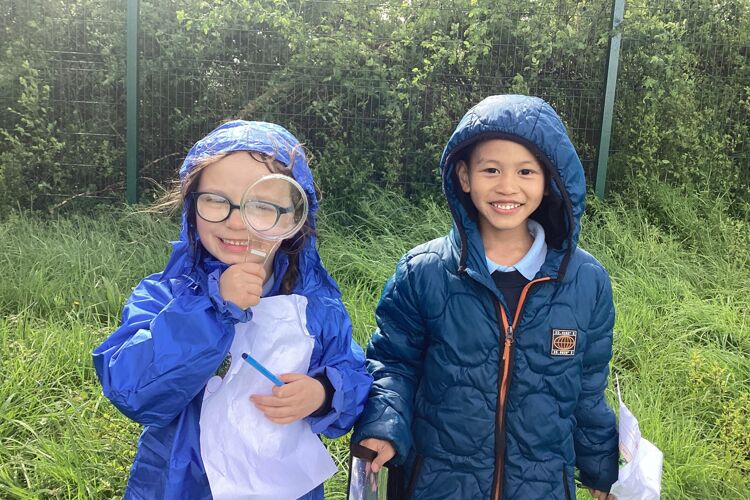
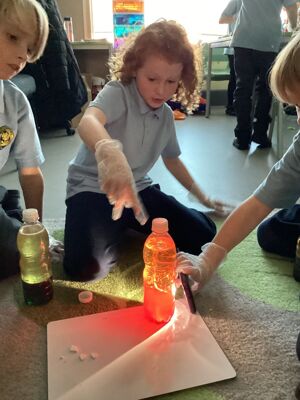 Why is Science important?
Why is Science important?
Science is an important and valued subject because it is highly relevant; an integral part of daily life, from cooking and checking the weather, to recycling and nature walks.
Through science, our lives are changed for the better. We believe all pupils should be taught about the role that science plays in positive advancements, as well as scientific knowledge, methods and processes.
Advances in science are continuing to transform our world at lightning speed and we need to do our best to prepare our pupils for a future we can only imagine.
When is Science taught?
Science is taught through thematic units. The Satellite View maps out which thematic units feature this subject and clearly shows the objectives taught.
How is Science taught?
Science is taught through working scientifically (involving practical investigation, observation and application skills, enquiry and research) alongside specific taught subject knowledge. Learning takes place both inside and outside the classroom.
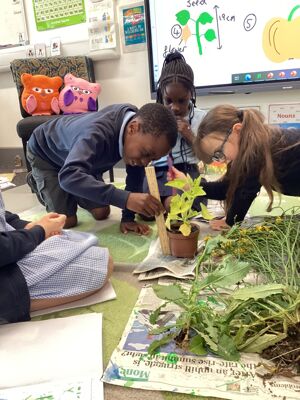 What do we learn about in Science?
What do we learn about in Science?
‘Learning Means the World’ Curriculum
We learn about:-
Plants
Animals, including humans
Materials
Seasonal changes
Living things and their habitats
Light and heat
Forces and magnets
Sound
Electricity
Earth and space
Evolution and inheritance
Movement
For more information regarding Science curriculum coverage, please refer to the Science Rationale Document.
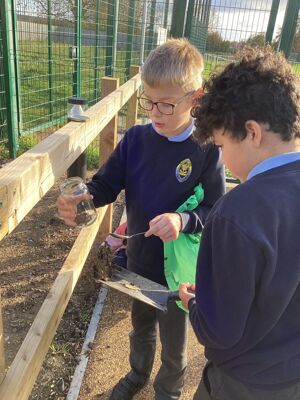
How do we assess and monitor Science?
Scientific working is assessed with investigative activities. Regular questioning and observation throughout teaching units provides assessment of comprehension and helps to identify misconceptions.
Summative assessment takes place at the end of a set of lessons planned to teach certain skills and concepts when teachers and children have clear evidence of their learning.
Pupils are provided with a range of experiences to represent or express their understanding, in what they do, say, write or draw.


